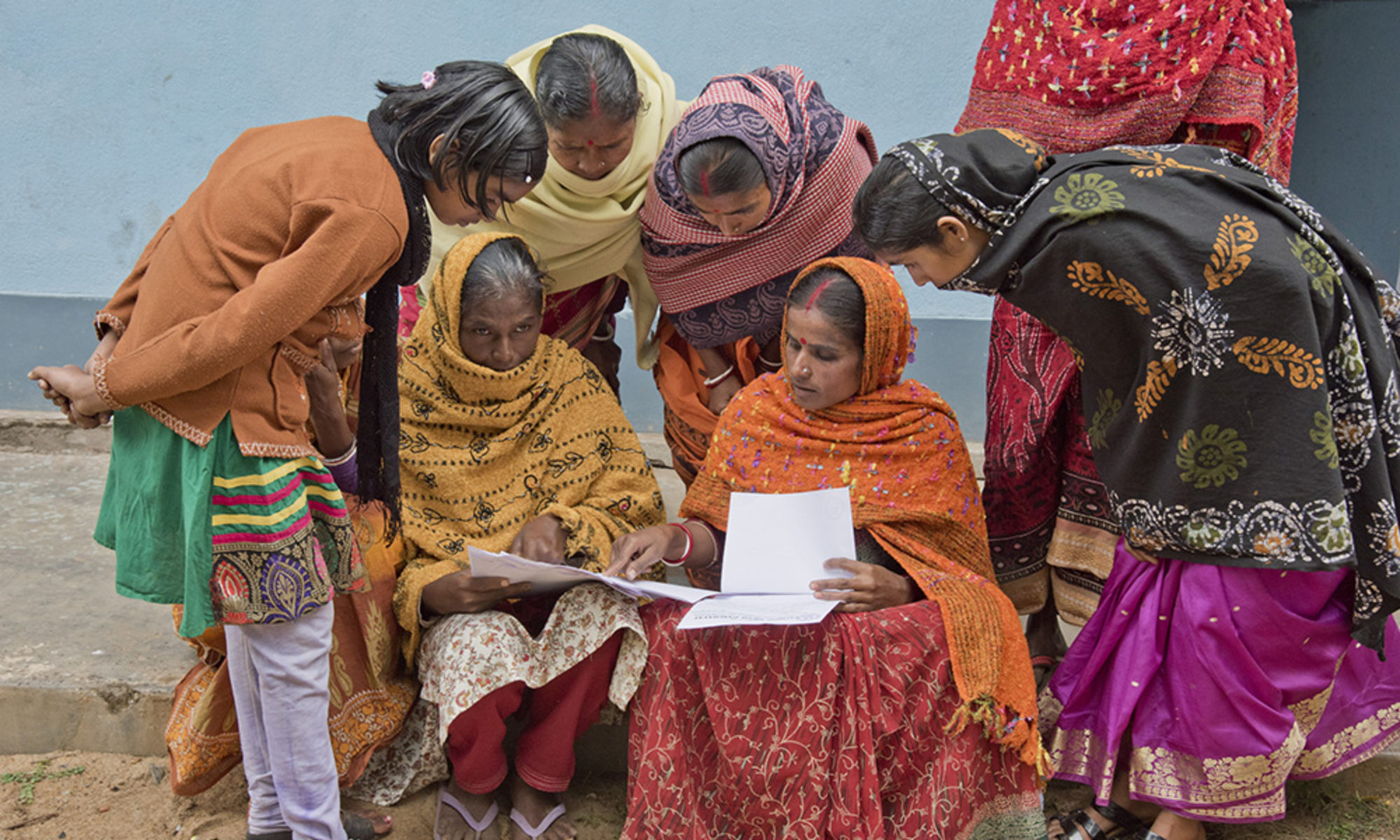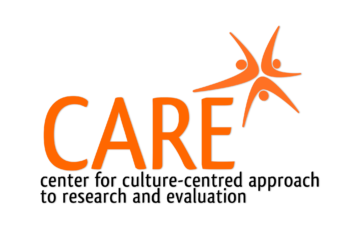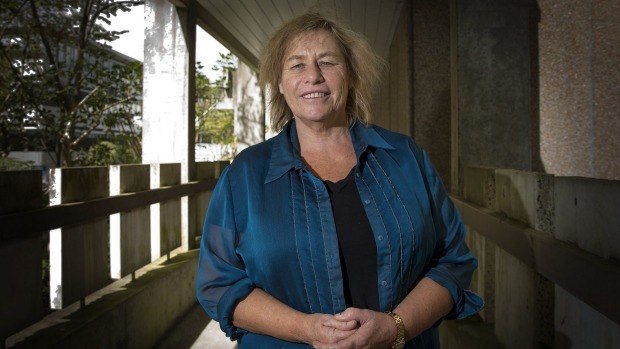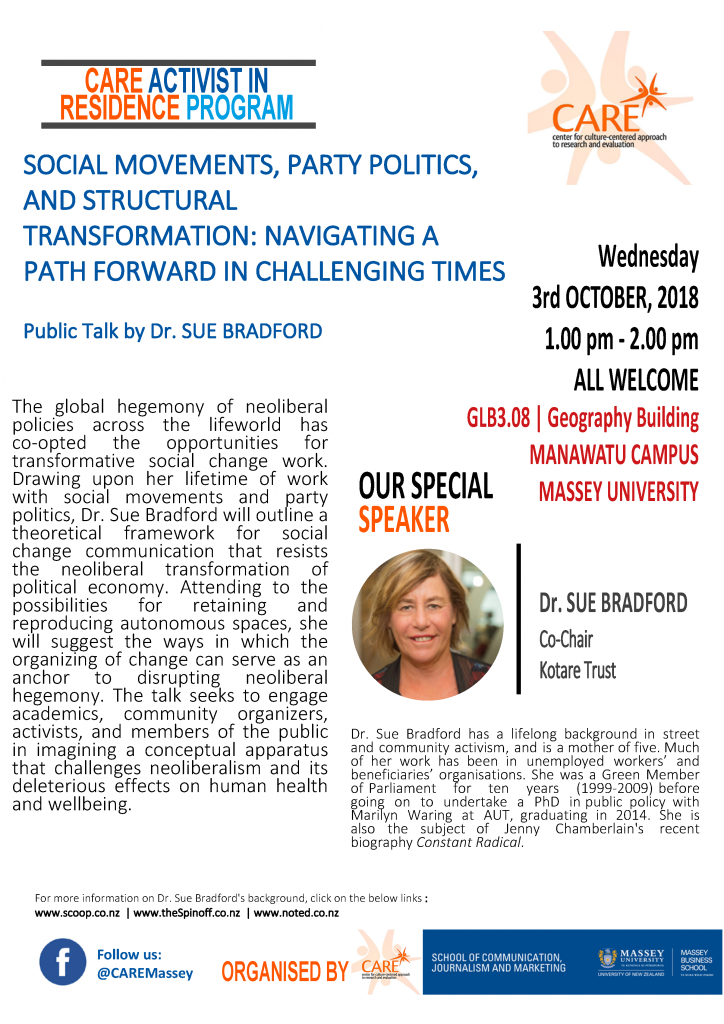“Activists and academics are not typical bedfellows, but Sue Bradford is making sure the two parties can learn from each other.
The well-known activist and former Green Party MP is the activist in residence at Massey University in Palmerston North for a week. Bradford was asked about a month ago by professor Mohan Dutta, who is the dean’s chair of communication for the new Centre for Culture-Centred Approach to Research and Evaluation, to take the position.
The two are producing a paper on the partnership between academics and activists in struggles of the oppressed. Universities often have an artist in residence, but having an activist is not as common. “This question around the relationship between people who are active outside in grassroots organisations and how people inside the universities can work together is quite fraught and difficult because there are often problems,” Bradford said. “But there are also huge advantages to both. It has never been an easy path in this country.”
She said this week was an opportunity to explore the relationship between activists and academics.”Often, academics are seen as people that come in and do research on us, do their PhDs on us.” She wasn’t given any instruction about what she could do while being the activist in residence. Bradford said there wasn’t the same level of political activity in this generation of students as there had been in the past.
On Wednesday, she spoke to students about her background in the 1980s and 1990s working with an unemployment workers group and unions, and on Thursday she held a workshop with Manawatū activists and students. At 2pm on Friday she is speaking about social movements and her history in and out of Parliament, having previously been an MP for 10 years.
“It’s a completely new experience but at the same time I’m into new experiences and finding out about new people.”
Bradford said the CARE centre worked on transforming structures through communication, culture and community, and that’s what she had spent her life doing, so was keen to be involved. Bradford works for the Kotare Trust in Auckland, which does research in education for social change in Aotearoa.
Dutta brought the CARE centre with him to Massey from the National University of Singapore and he is a leading scholar for health communication and is a researcher of indigenous rights and activism. He said the work of CARE was about creating communication platforms for democratic spaces so communities in disenfranchised places had a voice. The centre also looks at poverty and health for migrants and refugees.”
Article Source: www.stuff.co.nz
Article Link: https://www.stuff.co.nz/manawatu-standard/news/107443172/sue-bradford-takes-up-residence-as-massey-universitys-activist
Click on the url link for media related articles on Sue Bradford



